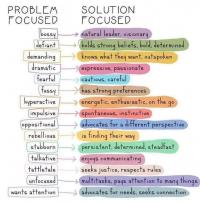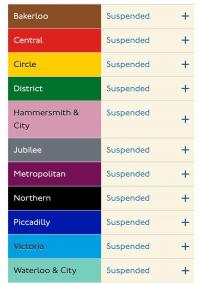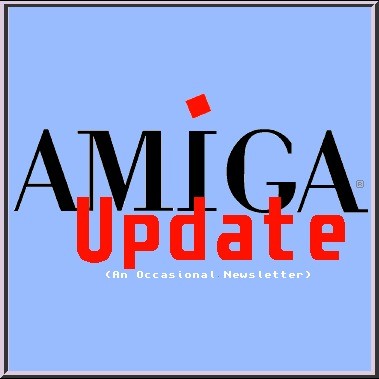What My Amiga Means To Me
AMIGAphile Volume 1 Number 2 (AUGUST 1992)

(C) 1992 Ken Thompson, Tucson, AZ
The title of this article is something that just gelled into the foreground of my brain, as I sit here and see the cover of the premier issue of AMIGAphile. I have done quite a bit of writing over the last several years, being the editor of the Hughes Aircraft Company Employee Association at Tucson (HEAT) Commodore Computer Club, first about my C64, then my C128, and now about my Amiga. Although our membership is limited to employee's and their family members, I try to write articles with all ages and abilities in my mind as I write them. Many times, while writing to an audience that is this varied, you tend to lose either the very inexperienced user, or the very experienced user. I hope I do neither with this article.
So, I now sit here with my text editor, and try to think "What DOES my Amiga system mean to me?" This is a tough question to have a simple answer for, but it is possible, with just a bit of thought. I chose to purchase an Amiga for a very simple reason; the user of the machine is capable of doing more than one thing at a time, so why shouldn't the computer be able to?
I have owned Commodore computers for over ten years now. I won't go into details of writing my first program with my 5k VIC20 (how can you write ANYTHING useful these days in BASIC, with only 3k or RAM??), or when I upgraded to a C64 a couple of years later, or when I moved onward to a C128 when the C64 died. I know that many of you have had similar personal computer upgrades. You may not have started with a Commodore, but you have one now, and I'd be willing to wager that, if the time came to upgrade to something else that's bigger/better/faster that had an Amiga nameplate on it, you would at least seriously consider it over something else in the market.
I thought long and hard on purchasing the A500 system that I bought about 1 1/2 years ago. Ever since I saw my first "Boing!" demo at that user group meeting many, many years ago, I knew that eventually I would own one. Only now that I have one, do I realize that I did make the right choice. Did you make the right choice? Even if you complain about various things about it, you probably did make the good choice.
Okay, so I can't run WordPerfect, even on the PC's at work; I have an extraordinarily hard time with any PC program...it's just so cryptic, isn't it when it compares to an operating system like AmigaDOS? I have a couple of perfectly good word processors that equal (in my opinion) software for Intel- based machines, and that suit my personal purposes just fine. If I happen to need the services of something printed to a laser printer, utilities abound for getting my text onto a MS-DOS formatted disk. I take it to my wife's place of business, and in a few moments, it comes out of the printer in perfect form; if not, onto my 24-pin printer here at home it goes.
My system is a hobbyist system, even with the recent addition of a hard drive and more memory. I have more than enough computing power to do everything I want to do with my system. Most of the time, I am found either writing my newsletters, doing some programming, calling bulletin boards, and playing some graphically superior games. I can find answers to many of my most pressing questions with a few phone calls, and a few hours to a few days worth of wait. The fact that the system is able to do any or all these things simultaneously is the real feature of our Amiga systems, and I think you will all agree this continues to be the strongest point of our beloved Amy's.
I have had the opportunity, recently in my job, to run many different types of computers, large and small. One of the last machines I operated was controlled by an Macintosh. I have to admit that, although accelerated with a 68030, there were many things the operating system was so slow at, such as saving data files, and so forth. I chatted at length with the system manager about the differences between an Amiga and a Mac, and he was impressed at how I described the multitude of things we Amigaphiles take for granted. Doing a floppy format while continuing to run the application of interest was something that he just didn't see necessary, and until you're NOT able to do something like this is when you really miss it. When I spoke to him about being able to do even simple things like this with my home system, while the system I used while working, which cost several times more than my personal system, was not able. I joked to him, "Well, you get what you paid for!"
I suppose that what I am getting at is that a computer system is much the same as the personality of the individual who owns it. I believe that having a system like the Amiga, with all it's strong points of graphic, audio, and multitasking superiority, over it's Mac and Intel-based cousins, is having a system that will do precisely what you want it to do, day in and day out. Other systems that "can't chew gum and walk at the same time" can be a very bad experience, especially when you have used a platform that CAN do these things and many more simultaneously.
Now, we all have heard that "...because it doesn't have (program of your choice here!), it's not a real computer!" just doesn't see a basic human trait here. So what if Amiga doesn't have V5.x of WordPerfect; buy Excellence!, ProWrite, or any one of the other fine word processors out there, and see how much BETTER it is, running a simpler, yet just as effective program for putting words into a computer. The point is (and I know some flames will come of this statement), do it with something else, and see that the world does not revolve around MicroSoft, Borland, IBM or several other multi-megabuck corporations.
"What My Amiga Means to Me" is the title of this article, so it's time to sum it all up. My Amiga means this: I have purchased the best personal computer for the money for my personal use. It really doesn't matter to me that Big Business doesn't use it. I know that many of them may consider using it, if they knew more about it, and would not follow those previously-mentioned corporate giants into the pool of mediocre software and hardware. Commodore Business Machines, along with other companies like GVP, Electronic Arts, Newtek, ReadySoft, and many others continue to support my present machine, and they are doing some (though not as much as we all would like) improvements to the system, both hardware and software. We, as Amigaphiles, need to continue to support Commodore in their positive efforts toward the system as a whole. When they do something that we think is "brain-damaged", we all should let them know (nicely) that we feel they have taken the step in the wrong direction, and follow it up with constructive comments. I know that Commodore many times does not seem to take the time to actually listen, or respond when we do these things, but it must not be discontinued. The communication has to continue to take place from us to them. With ALL of us taking the time to do these small things regularly, we will all benefit in the end, Commodore, you, and I.
About the Author: Ken Thompson is a 31 year old transplanted Tucsonan, who, while not working at Hughes Aircraft Company as an Electronic Technician, enjoys his computing, motorcycling, and photography hobbies. He may be reached via Internet at "cobra@datalog.com".
























